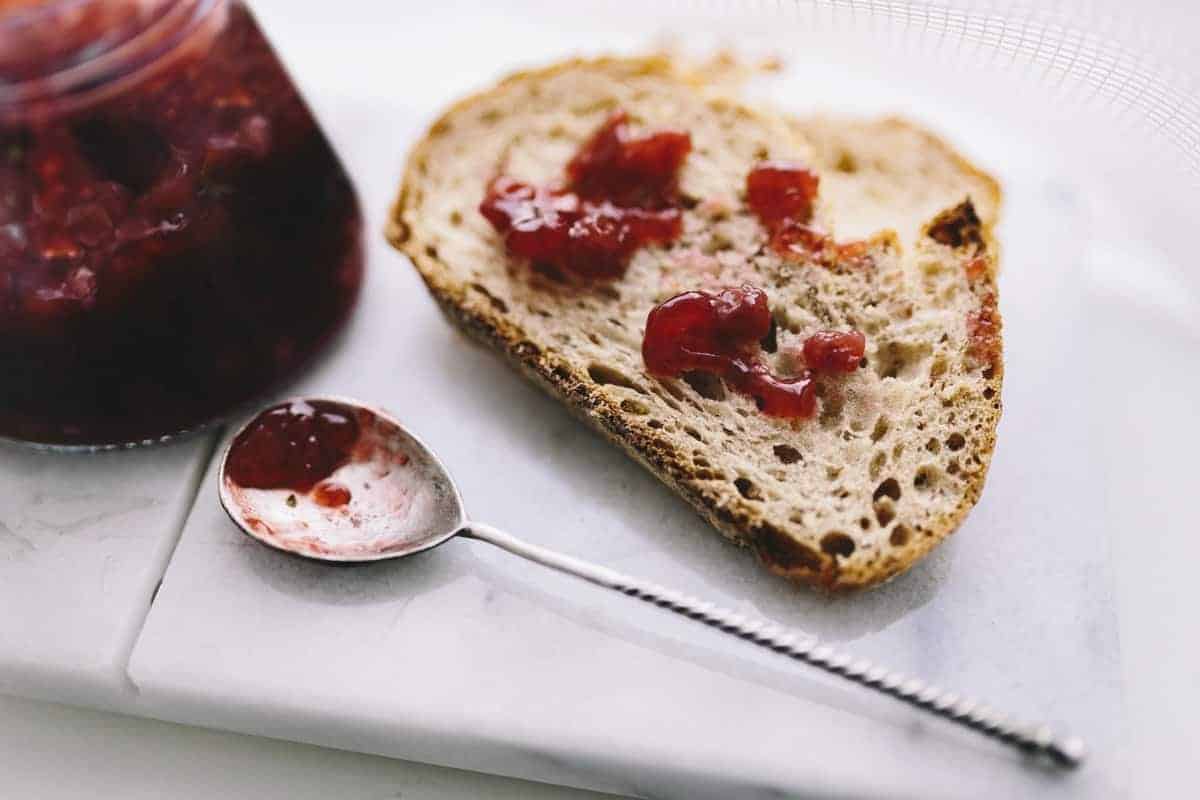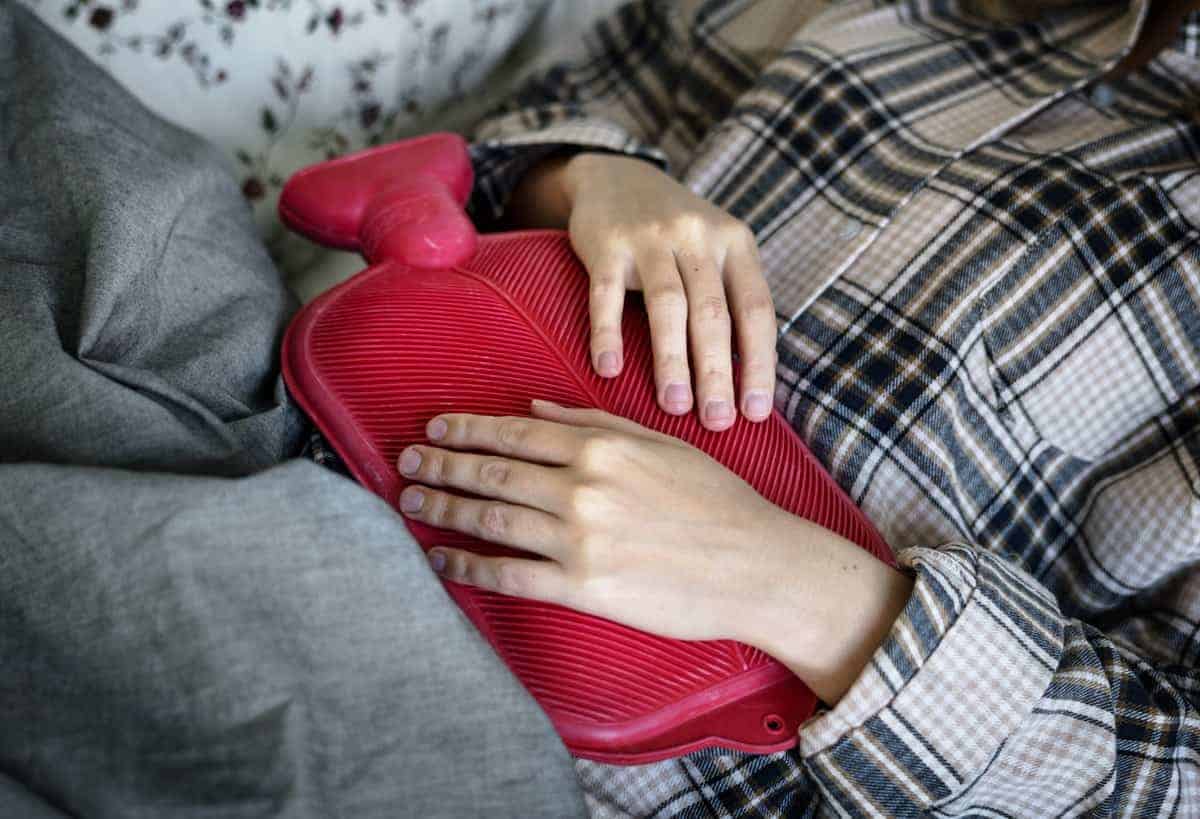If you have celiac disease or gluten sensitivities, you are likely familiar with the term "glutened." It's a strange and terrifying word, especially if you have a severe allergy as a celiac and accidentally eat gluten. Fret not, fellow gluten-free friends. Here's what to do if you have celiac disease and get glutened...
But, first! What does "glutened" mean anyway?
I came to understand this term from firsthand experience, unfortunately.
After a refreshing yoga practice at my gym a few months ago, I treated myself to a nourishing and nutritious salad bowl. Full of healthy grains, veggies, and greens, I was setting myself up for a fantastic self-care day.
Almost immediately after licking my bowl clean, my stomach cramped up in painful knots.
This doesn't feel right, I thought to myself.
I quickly cross-checked the ingredient list, and there appeared the ingredient that felt to be slowly burning holes in my intestinal lining: farro. If you're not familiar with farro, it's a type of hulled wheat, and most definitely not approved for those with celiac disease.
Obviously I Googled "what to do if a celiac eats gluten" within seconds. And that's how I came to learn of the term "glutened."
The official definition of "glutened" is when someone with celiac disease or wheat allergy becomes ill after consuming gluten.

What causes celiac disease?
This is the clinical cause of the autoimmune disease, cited from Mayo Clinic:
"Celiac disease occurs from an interaction between genes, eating foods with gluten and other environmental factors, but the precise cause isn't known. Infant feeding practices, gastrointestinal infections and gut bacteria might contribute to developing celiac disease.
Sometimes celiac disease triggers—or becomes active for the first time—after surgery, pregnancy, childbirth, viral infection or severe emotional stress.
When the body's immune system overreacts to gluten in food, the reaction damages the tiny, hair-like projections (villi) that line the small intestine. Villi absorb vitamins, minerals and other nutrients from the food you eat. If your villi are damaged, you can't get enough nutrients, no matter how much you eat.
Some gene variations appear to increase the risk of developing the disease. But having those gene variants doesn't mean you'll get celiac disease, which suggests that additional factors must be involved."
Complications of celiac disease
Another resource I use for the latest information on celiac disease is celiac.org. Here is a list of their long-term health affects and complications of celiac disease if improperly managed:
- Iron deficiency anemia
- Early onset osteoporosis or osteopenia
- Infertility and miscarriage
- Lactose intolerance
- Vitamin and mineral deficiencies
- Central and peripheral nervous system disorders
- Pancreatic insufficiency
- Intestinal lymphomas and other GI cancers (malignancies)
- Gall bladder malfunction
- Neurological manifestations, including ataxia, epileptic seizures, dementia, migraine, neuropathy, myopathy and multifocal leucoencephalopathy
- Development of other autoimmune disorders (I am positive my Hashimoto's and hypothyroidism diagnosis was because of celiac disease)

What does it feel like to get glutened?
People with a gluten allergies vary in severity, therefore reacting differently. However, here are some general reactions across the board that indicate you may have been glutened:
- Nausea and vomiting
- Cramping, bloating, and diarrhea (however, I've heard of some people having the inverse problem with extreme constipation
- Brain fog
- Headache and joint pain
- Fatigue
5 tips to support recovery if a celiac eats gluten, AKA gets glutened
This is my protocol when I accidentally eat gluten. It works really well in supporting my recovery and feeling well again. I hope these can help if you experience the unfortunate event of being glutened.
- Immediately take a probiotic and digestive enzyme. This helps support healthy gut bacteria and restoring any disrupted flora. I use these probiotics daily, along with these digestive enzymes. Gut health is a crucial part of overall wellness.
- Drink water. I aim to get at least 64 oz a day, and enjoy drinking peppermint or ginger herbal tea, to support inflamed tissue in my stomach and intestinal lining. This is a great proprietary tea blend.
- Get plenty of rest. This is a great time to relax and do nothing. I love any reason to lie down and take a nap. Especially when getting glutened! My body often feels achey and tired for about 24-48 hours after.
- Epsom salt bath. These are fantastic for drawing out toxins from the body. Also, the warm water always feels soothing to my bloated and cramped stomach. I buy my Epsom salts here.
- Rub digestion-supporting essential oils on stomach. A great blend is peppermint, ginger, and fennel. I personally use and recommend a propietary blend called DigestZen, which includes peppermint, ginger, fennel, tarragon, anise, and caraway essential oil. You can buy it here. It comes in a pre-diluted roller ball so it's safe to use topically. Every time I use it, my stomach feels significantly less bloated and crampy in the morning.
Those are all my current tips! Remember to carefully check all labels and ingredient lists if you have celiac disease. Sometimes unsafe ingredients pop up in the least expected places. I'd also love to hear if you have any tips that work for you when you've been glutened! Leave them in the comments below!




Leave a Reply